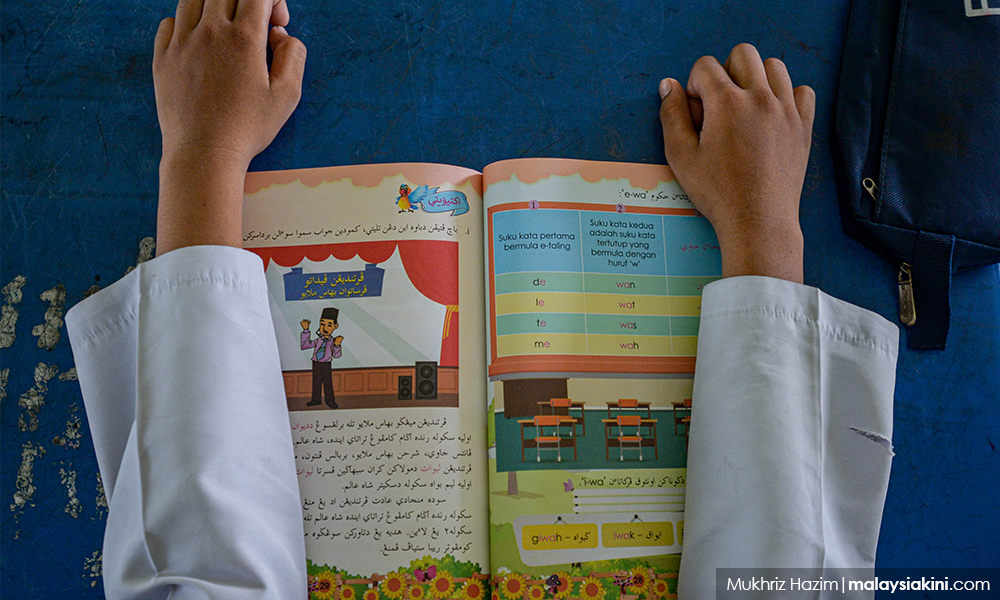ADUN SPEAKS | Despite opposition, the government has refused to backtrack on the introduction of khat or Jawi calligraphy in primary schools, both national and vernacular.
However, some modifications were made, such as reducing the syllabus from six to three pages, allowing teachers the freedom in the implementation process, rendering it not as subject matter, but an activity, on which students will not be evaluated.
Modifications from the original are meant to address the concerns of Chinese and Tamil educational concerns.
However, despite this, non-Malay vernacular educational groups are still opposed to khat. For these groups, it is better for khat to be optional, and even placed outside school hours rather than integrated within the school curriculum.
The non-Muslim groups are opposed to khat, saying it is religious intrusion that runs contrary to the country’s constitution. They want khat to be scrapped in toto.
The government might have won a victory insofar as the khat policy is concerned, however, it might be a pyrrhic one.
Enough damage has been done in ethnic and religious relations something not really expected from the Pakatan Harapan government that promised good governance and a new era for Malaysians.
The government rather than reviewing the policies of the BN sought to mechanically impose them with little or no regard for Malaysians particularly the non-Malays, the majority of whom are Harapan supporters.

Khat might just be calligraphy that might not have any impact on students particularly in vernacular schools, but the imagined fears in the polarised atmosphere of Malaysia have put the non-Malay communities on the defensive.
It is clear that even if there are positive effects from khat, the damage done will clearly outweigh the advantages.
It is not that the government was not aware of this, but the move to appease certain sections of the majoritarian community has not gone with non-Malays or non-Muslims.
Whatever goodwill and understanding that was beginning to take shape under the Harapan are fast declining.
Khat might be just calligraphy, but it took our country by a storm, creating all kinds of anxieties and fears.
It was the imagination that what might come in the future proved extremely worrisome to many especially those in the non-Malay communities.
The fear generated might be have been exaggerated, but the political, social and cultural context mere reaffirmed the fears.
It was the entrapment of the zero-sum game that foreshadowed any debate on the merits and demerits of the policy measure.
Whether khat is right or wrong it doesn’t matter any more. Its very introduction has complicated the racial and religious landscape of Malaysia.
The question is: can we get out of this mess and move forward?
P RAMASAMY is the state assemblyperson for Perai. He is also deputy chief minister II of Penang.
The views expressed here are those of the author/contributor and do not necessarily represent the views of Malaysiakini.

